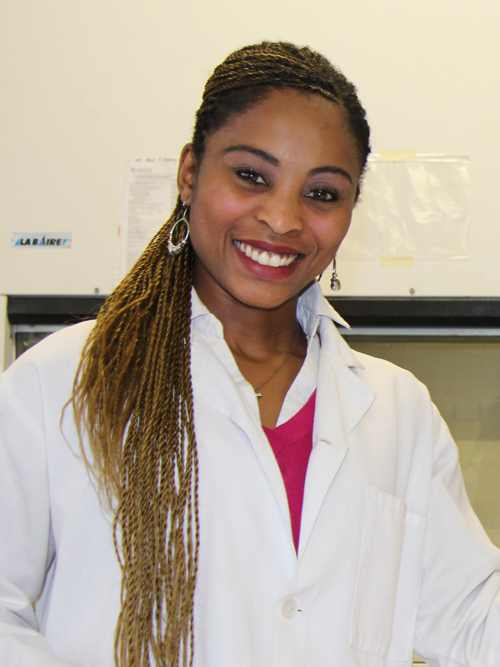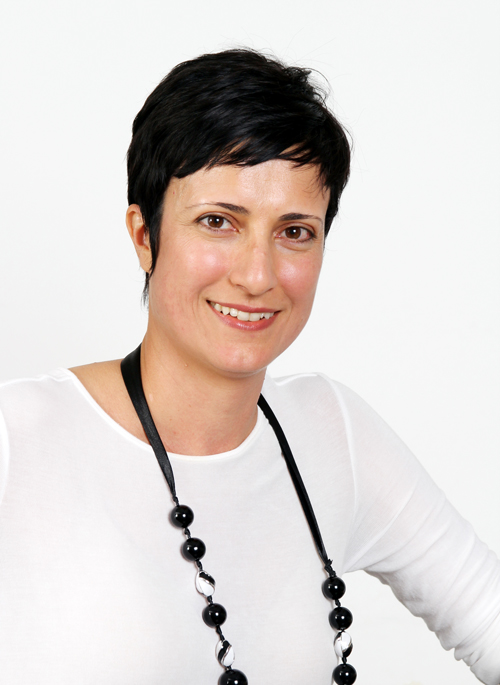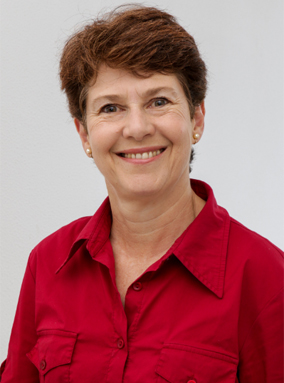In the spirit of Women's Month, some of the fantastic work by inspirational women scientists at the Faculty of Medicine and Health Sciences (FMHS) is highlighted.
Young women who want to follow a career in science should think "big and bold" and learn from other women who went before them.
This is according to one of South Africa's female pioneers in science, Professor Eileen Hoal, whose life's work has been focused on exploring diseases on a molecular level.
"The stories of women in science vary enormously, but nearly all highlight that going into the sciences may not always be the accepted career path for girls, and therefore needs more effort than the alternatives," says Hoal, from the Division of Molecular Biology and Human Genetics at the FMHS at Stellenbosch University (SU).
Although science may traditionally be viewed as a male-dominated field, women have contributed to some of science's biggest breakthroughs: from unravelling the structure of DNA to discovering fission and mapping the ocean floor.
Meet three women scientists working to combat South Africa's biggest killer: tuberculosis (TB). Doctoral student Caroline Pule is fast making a name for herself, while Profs Samantha Sampson and Eileen Hoal are leaders in the field of TB research. Here are their stories:
 Ms Caroline Pule
Ms Caroline Pule
Caroline Pule is a doctoral student at the FMHS's Division of Molecular Biology and Human Genetics and an ambassador of The South African National Tuberculosis Association. At the recent Women in Science Awards, presented by die Department of Science and Technology, she received the TATA scholarship for her doctoral research which focuses on the physiology of drug-resistant and tolerant TB.
Her research focuses on understanding the biology of drug-resistant TB and the host response in the context of the host macrophage – macrophages are the cells of the immune system that are formed in response to infections. "I explore these by the use of proteomic analysis, fluorescence dilution and macrophage-model experiments and consolidate resulting data using bioinformatics. My work may lead to the development of novel drug targets to combat the spread of drug-resistant TB," explains Pule.
She has achieved a lot in her short career, and occupies leadership positions in multiple organisations focused on TB eradication, women in science, leadership and community development. She holds an MSc in Molecular Biology from SU. Her awards include being counted among the 20 best performing students at the Cape Peninsula University of Technology in 2008 (where she did her undergraduate degree). She was awarded a merit bursary covering all her fees and completed her BTech in Medical Biotechnology with an overall achievement of 14 distinctions. In March 2015 she attended the TB summit in London, where she was one of the three researchers awarded a prize for the best poster presentation.
She is a devout believer and has known from a young age that she wanted to live a purposeful life, give back to the community and help others. Her career in medical science was born from her desire to help.
She has this to say to young girls who are considering a career in science: "You need to work very hard, work consistently, be smart and go the extra mile to get good marks. Life is about choices, it doesn't matter what family you come from, whether rich or poor. Your background doesn't limit you as a young woman to pursue your career, your dream, to be that doctor, engineer, scientist or mathematician you want to be. All you need is to be focused, vigilant, willing to excel in all you do and use every opportunity that comes your way to succeed.
"Tell yourself 'I can do it', 'I have what it takes to succeed'. Take charge and dream big."
 Professor Samantha Sampson
Professor Samantha Sampson
Prof Samantha Sampson is an established researcher at the Division of Molecular Biology and Human Genetics and was recently awarded the South African Research Chair Initiative (SARCHI) in mycobactomics by the National Research Foundation (NRF).
She says that she has had to work hard to be recognised as a woman scientist and is one of several women in the field of tuberculosis research that have achieved the level of professor.
Sampson's work in TB research focuses on mycobacterial genetics, microbiology, immunology and animal models of TB.
She has always had a passion for biology and wanted to be a veterinarian, but later changed her mind when she was doing her BSc Honours at SU. She continued her studies up to PhD level and then undertook post-doctoral training at the Harvard University School of Public Health and Imperial College London.
She is currently the principal investigator of a research team in her division. "The ultimate goal of the research group is to gain a better understanding of how the pathogen mycobacterium tuberculosis interacts with its host to cause disease. Molecular mycobacteriology and in vitro infection models are used together with data-rich methodologies such as whole genome sequencing, transcriptomics, proteomics and lipidomics to achieve the goal."
Outside of work Sampson enjoys watching her favourite TV programme, Peaky Blinders, and for relaxation she does dog training and goes to the beach.
Her message to aspiring woman scientists is: "Be absolutely sure this is the career you want because it is very challenging, but if you're passionate and willing to work hard at it, it can be very rewarding. Also have a good mentor, someone who can sell you."
 Professor Eileen Hoal
Professor Eileen Hoal
Professor Eileen Hoal is a core team member of the Department of Science and Technology (DST) / National Research Foundation (NRF) Centre of Excellence for Biomedical TB Research (CBTBR), and also heads a group that investigates the human genetic susceptibility to TB in the Division of Molecular Biology and Human Genetics. Their research involves case control and family-based association studies to find genes linked to an increased susceptibility to TB. More recently, next generation sequencing and exome analysis is being done.
"I always loved science, especially biology, but thought that medicine would be too boring. After a wonderful year doing a BA-degree, I settled down to a BSc, and then followed my interest through the twists and turns of microbiology, immunology, cell biology, and eventually to host genetics of TB," explains Hoal, who has been working in the field of genetic susceptibility to TB for over 20 years.
The most rewarding part of her job is doing experiments and finding something new and unexpected, and then trying to figure out how it works.
She adds that although it has been difficult being a woman in a traditionally male-dominated field, conditions have improved for women. She has managed to have a successful career and have children, but says she has had to make sacrifices in both areas of her life.
She gives the following advice to young girls considering a career in science: "Believe in yourself and go for it! Develop a thick skin. Try to job shadow in the field you are interested in, but be aware that these 'snapshots in time' don't often show you what the job is really like."
*Thato Motlhokodi is a science journalism intern with the Department of Molecular Biology and Human Genetics at SU. She obtained a BA degree in Communications at North West University. With this internship she hopes to make science accessible to everyone.

